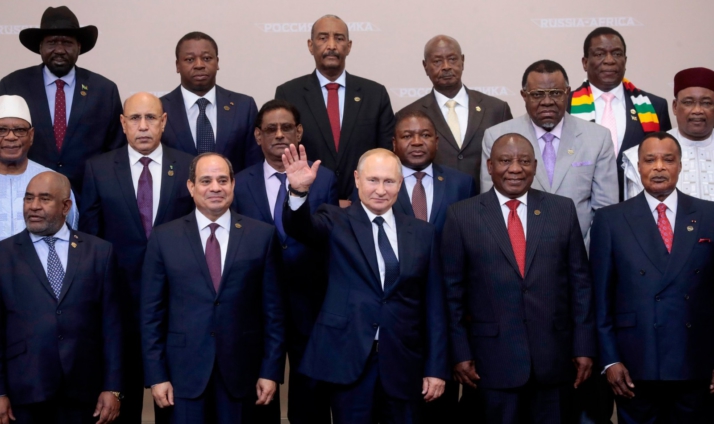Russia’s cooperation with the African continent countries has deep historical roots. This cooperation had the widest and most multidimensional character in the Soviet era: the anti-colonial struggle in Africa became a long-term component of Soviet policy both before the WWII and in the post-war period.
The efforts of Soviet diplomacy were aimed at ensuring this policy as well as political, economic and military support for national liberation movements in Africa.
Such Soviet policy aimed at supporting African countries in their pursue of freedom became more avid after the WWII, when the USSR — the country that defeated fascism — gained great international prestige and when the newly formed countries of the Socialist Commonwealth joined the anti-colonial struggle in Africa.
In 1960, the Soviet Union initiated the adoption of the “Declaration on the Granting of Independence to Colonial Countries and Peoples” by the UN General Assembly.
And in 1961, at the request of the USSR and other socialist countries, a Special UN Committee was established to implement the ideas behind this Declaration.
The Committee played a very important role in the final destruction of the colonial system. In particular, in 1963 Soviet diplomats ensured that the UN Security Council adopted a tough resolution on the imposition of sanctions against Portugal, who did not want to part with its African colonies.
To a large extent, as a result of the activity of the USSR, many African states gained independence in the 1950s–70s. By 1984, the Soviet Union had stable diplomatic relations with 46 African countries out of a total of 53.
Moreover, such a complete coverage of Africa by Soviet diplomacy was connected not only with the merits of the country in eliminating the colonial system.
In the post-colonial period, the USSR persistently developed relations with African countries in several directions at once, which were extremely important for the newly independent states.
Latest Stories
-
‘You can never be settled’ – Bellingham dreaming of more after Champions League comeback
1 hour -
Ghana Stock Exchange reaches record GH¢80bn market capitalisation
1 hour -
Champions League: Real Madrid snatch stunning win over Bayern Munich to reach final
1 hour -
Jersey returns £829K of illicit funds to Mozambique
2 hours -
Prof Kwesi Yankah: Public protocols and my waist pains
2 hours -
Amazon launches online shopping service in South Africa
2 hours -
Microsoft to shut Africa development centre in Nigeria
2 hours -
Anger in Nigeria over levy on money transfers
2 hours -
Lifestyle audit will help identify unexplained wealth – Domelevo
2 hours -
Media must act responsibly in live telecast of high-profile court cases – Sulemana Braimah
3 hours -
Limited registration: EC apologises for delays on Day 2, gives officials fresh directive
3 hours -
Cedi depreciation: Is remittances the forgotten saviour?
4 hours -
Yul Edochie and estrange wife May’s divorce case stalled
4 hours -
Local truck drivers deserve protection too – Ablakwa on police directive against harassing foreign drivers
4 hours -
Bawumia is respectful, intelligent, naturally humble – Dormaahene
4 hours

